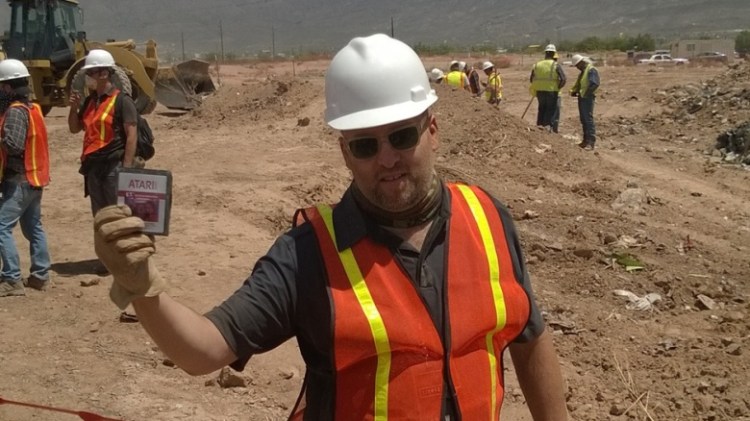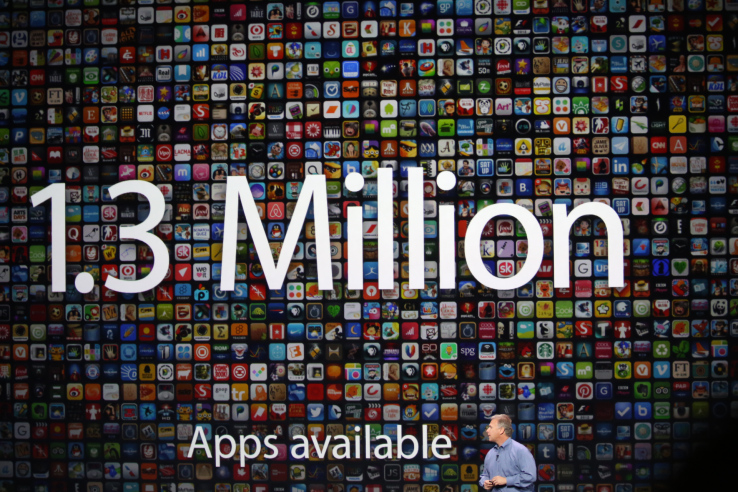I had a wonderful Thanksgiving and I hope you did too. Thank you for reading GamesBeat, VentureBeat, and my DeanBeat columns. Thanks also for participating in our community through our various events in mobile, games, and growth topics. I fully realize that we wouldn’t be in business if there wasn’t a vibrant startup industry in Silicon Valley, a strong game business as gaming goes global, and a lot of interest in must-attend events. We hope you’ll keep coming back, and we hope to keep offering the best straight talk on games and tech.
In gaming, I believe we should be thankful that the entire industry is thriving. The consoles are thriving thanks to red-hot competition between Sony’s PlayStation 4 and Microsoft’s Xbox One. The PC market is strong with free-to-play online games such as League of Legends and the rise of e-sports. Mobile games can now reach an audience of more than a billion people around the globe. And even Nintendo is showing signs of life with good games for the Wii U and Nintendo 3DS systems. Indie game developers have had a shot at the big time ever since Apple launched the App Store in 2008, allowing them to publish mobile games to a global market. Several market researchers believe gaming will grow from $70 billion in 2014 to $100 billion by 2017.
People like venture capitalist Bing Gordon, Unity chief executive John Riccitiello, and DICE Summit leader Martin Rae have proclaimed that we’re in a “golden age of gaming,” because the industry is growing on all fronts. It’s a reference to the golden age of arcade games in the 1970s. But we would do well to remember that previous golden age collapsed in 1982 with the launch of the horrid E.T.: The Extraterrestrial game, which was so bad that a bunch of the cartridges were buried in a New Mexico landfill and later unearthed this year.
While we’re all quite happy that gaming is expanding on all fronts, we would do well to remember the excesses of the past, so that we are not doomed to repeat the business disasters that ensue when gravity takes down our wildest hopes and dreams.
We have, after all, already seen a huge expansion in game studios and the gaming audience. Apple has more than 1.3 million apps in its App Store, and most of those are games. It’s worth noting that Apple has taken down a lot of apps and games that don’t perform. Each generation of consoles has reached hundreds of millions of people, but with mobile, the audience is potentially in the billions. We have all been the beneficiaries of this, with great games like Journey on the PlayStation 3 and Clash of Clans on mobile.
Everybody is chasing after that audience, but most of the game studios will end in failure. The odds against success are building. The bulk of the games in the app stores are now available as free-to-play, where users play for free and pay real money for virtual goods. But the number of paying customers is still a very small percentage of the overall pie. And the cost of user acquisition keeps climbing. Only the lucky or powerful companies can afford to stay in this game for the long term.
One thinker, Jeff Vogel, predicted earlier this year that indie game developers are about to see their bubble burst. He noted that the number of games appearing on platforms like Steam is accelerating, and the cost of making top-tier games is going up. Indies hope to stand out by bundling their games with others via marketing vehicles such as Humble Bundle. But there are a lot of bundles out there, and the price of what a developer can charge for gameplay is racing toward zero.
What’s the evidence for a bubble? Traffic in the Bay Area certainly feels like the halcyon days of 2000, just before the Dotcom bubble burst. It regularly takes me about two hours to drive the 50 miles from Los Gatos to San Francisco. In addition, Silicon Valley has a broad-based boom going on. For the first time since the 9/11 attacks in 2001, all three of the Bay Area’s employment hubs — the San Jose area, the East Bay, and the San Francisco metro area — each have more than a million jobs.
Accordingly, the market is frothy. Housing prices are soaring, up 14 percent from a year ago in October and close to the previous peaks that we saw in 2007. Companies are offering great perks. A boom in jobs could last another two years, according to the Center for the Continuing Study of the California Economy. Commercial real estate is bananas, as the price of office space in Mountain View, Calif., where Google is based, is 2.5 times the national average at $97 per square foot.
What does this have to do with games?
Many of the fast-growing gaming startups are based in Silicon Valley, but the froth has also spread to the game companies in Europe and Asia. I attended Finland’s Slush 2014 conference in Helsinki last week, where 14,000 attendees came to see 1,400 startups, including a bunch of successful game companies such as Angry Birds publisher Rovio and Clash of Clans maker Supercell.
Gaming has seen its own frothy activity. Facebook bought Oculus for $2 billion. SoftBank invested big dollars in Supercell and GungHo Entertainment. Amazon outbid Google to buy Twitch for $970 million. Zhongji Holding bought Funplus’ game assets for $960 million. Microsoft bought Mojang for $2.5 billion. Churchill Downs bought Big Fish Games for up to $885 million. Average investments in game companies are up. Mobile gaming firm Kabam cashed in on this craze by getting a $120 million investment from Alibaba.
Internet Dealbook found that the value of deals — combining both the acquisition values and game investment values — in the third quarter was up 6,120 percent from the third quarter of 2013. That was bigger than the value growth in most other tech businesses by far. The number of game acquisition and investment deals was up 56 percent in the third quarter, and the average deal value was $240 million, up from $7 million a year earlier.
God bless those critics and skeptics who warn that the bubble is about to burst and lead to financial ruin for us all. I don’t want that to happen. And I don’t see any signs that it will. But these naysayers are more apt to predict doom, and eventually, they’re right. Tony Perkins and Michael Perkins published their book, “The Internet Bubble,” in September 2001, just days after the September 11 attacks, and their anticipation of the speculative bubble bursting was prophetic.
Of course, those who sit on the sidelines will miss out on the opportunities of a lifetime. If Dan Offner, a veteran game lawyer, had not joined Oculus VR last year out of fears that the hype around virtual reality would burst, he would never have gone on the wild ride as the company’s general counsel. He would also have come out a lot poorer, just sitting on the sidelines.
Some companies like Oculus VR are purely speculative, as they offer disruptive technology. But others are well worth the price being paid for them, as they’re making real revenues. I wouldn’t be surprised if Supercell posts around $1.4 billion in revenues this year from three games. That’s far different from the days of the Internet Bubble.
I suggest that we all do what gamers do. We put quarters into machines and play. We should keep doing that. But when a bulldozer knocks down the arcade and picks up the machine and carries it off to the landfill, well, that’s probably the time to stop putting quarters into it and then go home.
This is going to be fun while it lasts, and I don’t see it coming to an end yet. In the meantime, I’m thankful, and thank you for reading. Happy Thanksgiving.
VentureBeat's mission is to be a digital town square for technical decision-makers to gain knowledge about transformative enterprise technology and transact. Learn More



